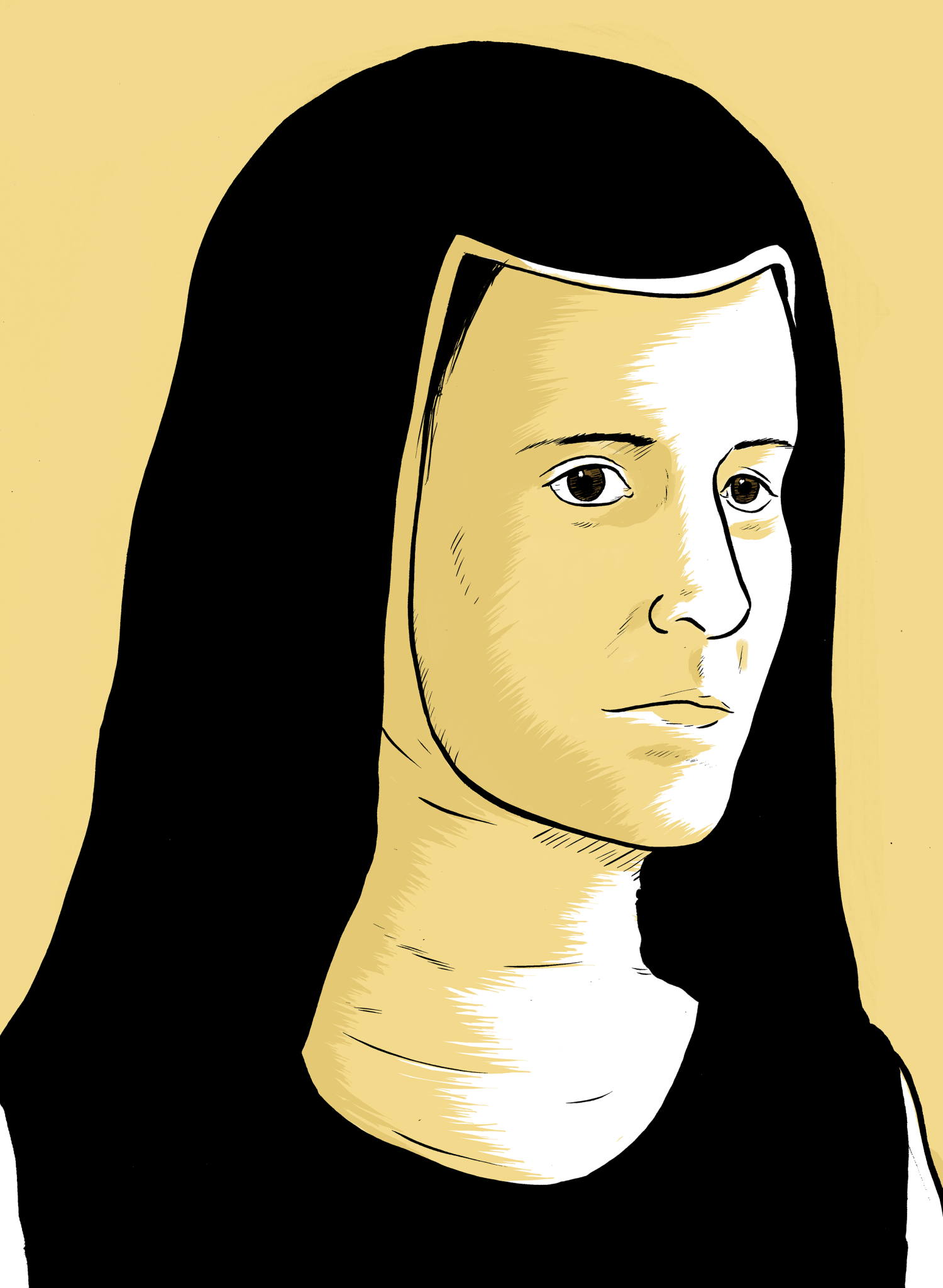It took the National Museum of Mexican Art a full three months, from September to November, to do justice to the legacy of Sor Juana Inés de la Cruz, a seventeenth-century nun often considered the first feminist of the Americas, whose passionate writing on female education and empowerment inspires many artists today. Every writer and performer who joined the museum as part of the Sor Juana Festival lineup—which ranged from a master class with Ballet Folklórico de México de Amalia Hernández to the world premiere of scholar Victor Espinosa’s book on Mexican artist Martín Ramírez—came to celebrate Sor Juana’s brave candor. One of the festival’s artists, author Sandra Cisneros, particularly embodied the continuing legacy of Sor Juana as she read essays from her new book, A House of My Own: Stories from My Life, a memoir that explores her relationships to family, Mexico, and her surroundings.
Juana Inés de la Cruz left her home in rural Mexico at age sixteen to join the Convent of Santa Paula of the Hieronymite, in an attempt to pursue her studies freely. It was 1667, when education was strictly off limits to women in Spanish-controlled Mexico. Sor Juana was relentless in her defense of female education and women’s rights—she refused to be limited by her religious devotion and wrote in several poetic and prose genres, receiving much criticism.
Sor Juana’s work was rediscovered in the feminist movements of the twentieth century, and she became a national icon in Mexico, appearing today on the 200-peso bill.
On Saturday, the festival came to a close with a sold-out reading by Cisneros, best known for her coming-of-age novel The House on Mango Street. A small group of children from UNO Sandra Cisneros Charter School and their chaperones sat along one aisle, while what looked like four generations of a family clasped hands near the entrance, which was covered in papel picados, the paper flags left over from Día de los Muertos celebrations. Cisneros—the recipient of a MacArthur Fellowship, two National Endowment for the Arts Fellowships, and a Texas Medal of the Arts—grew up in Chicago, and many of her memories (concerts in Grant Park, the dreaded trips to Jewel) resonated especially with the Pilsen audience. Confident and poised, Cisneros chose to read two essays from her new collection, “An Ofrenda for my Mother” and “Un Poquito de tu Amor.” Each selection delved into the complicated lives of Cisneros’s parents, and the intense childhood and heritage that inspired Cisneros to write such provocative works.
Like Sor Juana, Cisneros is spiritual but independent, fulfilled but unsatisfied. In the discussion following “An Ofrenda for my Mother,” she investigated the challenges her mother faced as she grew up and away from her dreams. The essay describes Elvira Cisneros as a “prisoner-of-war mother, banging on the bars of her cell all her life,” constrained by her seven children. Unwilling to suffer as her mother did, Cisneros is proud of her solitude, and says she would have been “burned at the stake in the olden days” for her reclusive ways and lack of desire for marriage.
She describes herself as an artist with an open mind and an open heart, sensitive to the world around her. To Cisneros, writing is a way to transform demons into art—to explore an evil feeling until it becomes generous and kind. Sor Juana considered her studies an essential step in reaching enlightenment, too, albeit a more spiritual one. Though she explains that she was “always directing the path of [her] studies toward the summit of holy Theology,” she believed it first “necessary to ascend the ladder of the sciences and the humanities.”
Cisneros too takes her observable world seriously. She does not waste her time watching “junk” on television, always ensuring that “if I see a piece of art, it’s going to be better than something I could make, and that piece of art will inspire me to make something as good or better.” She is not a loud activist, but a subtle one, who will explain the betrayal she feels when she watches elected officials ignore the issues that she sees clearly. She is tired of gentrification; she remembers the segregation that plagued Chicago when she was growing up in Humboldt Park, and she was met with murmurs of agreement from the audience when she proclaimed that racism still afflicts this city.
Cisneros is one of many women who have continued Sor Juana’s difficult work of striving for equality and fairness. But, like the nun, she is a voluntary outsider to an oppressive world. “I do not want to be an accomplice to impotency,” Cisnero said. “I tried to be good, I tried to do all the things that church and state and city and government try to make you do…but you get to some point where you have to ask, ‘What makes me happy?’ You have to be very brave to follow that path.”

